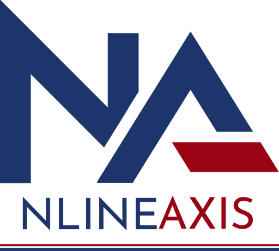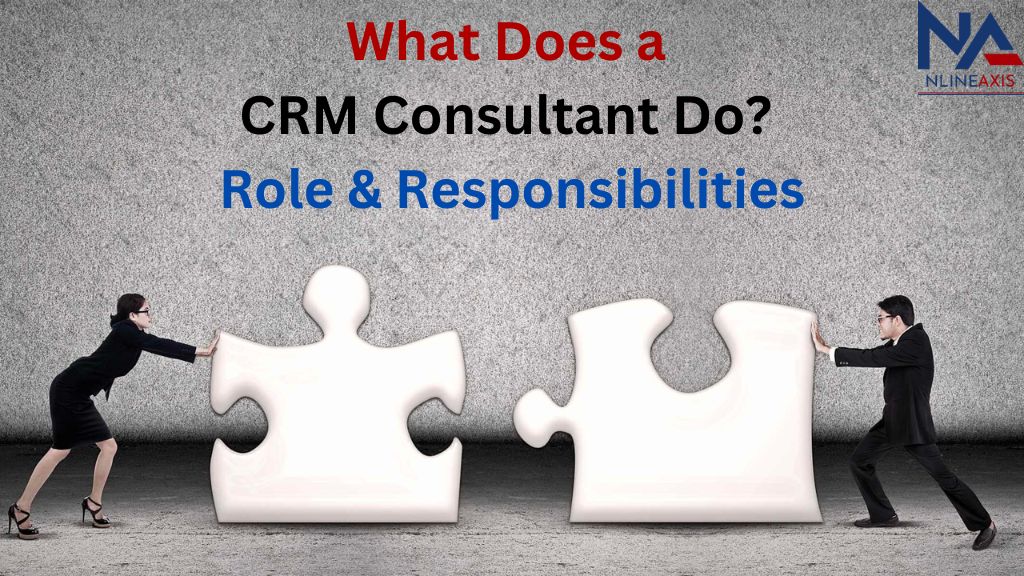What Does a CRM Consultant Do? Role & Responsibilities
Customer relationship management has emerged as one of the critical management functions in the contemporary business environment that aims to enhance the relationship of the organizations with their customers. However, the overall process of CRM implementation and management could be difficult and time consuming. This is where CRM consultants come in. In this article, learn how a CRM consultant works and why CRM consulting services – including Salesforce consulting services – are valuable to organizations today.
Understanding CRM Consulting
CRM consulting involves the service rendered by the CRM consultants, or the CRM consultancy firm, to help firms enhance their CRM initiatives and solutions. Such professionals have vast experience and knowledge in CRM software solutions, tools, and processes to provide helpful advice to organizations desiring to improve their customer-centric strategies.
CRM Consultant
1. Needs Assessment:
CRM consultants or CRM consultancies first of all make an analysis of the client’s organization needs. CRM consultants are engaged in the assessment of the existing business environment in terms of processes, technologies, and customer information. By doing so, they will be able to recognize areas in which the performance is suboptimal and discover how the CRM strategy can be optimized for improved outcomes.
2. Strategy Development:
According to the analysis made, CRM consultants design specific CRM strategies that are complied with the goals of the client. They include customer interaction, sales control, marketing, and customer care improvement.
3. CRM System Selection:
A major function of the CRM consultants is to assist the businesses in identifying the right CRM system to adopt according to their needs and financial capacity. They assess different crm software solutions and identify the most suitable one.
4. Customization and Implementation:
CRM consultants implement the chosen CRM platform while ensuring that it meets the needs of the business. They are responsible for managing the application process to make it fit seamlessly into other processes.
5. Data Migration:
Most organizations may find it difficult to transfer data from old conventional systems to the enhanced CRM system. CRM consultants perform this exercise with a lot of care given the fact that data processed here must be accurate and well protected.
6. User Training:
CRM systems has gain popularity in the current business world but it may all go to waste if the employees have no clue on how best to use it. In order to facilitate the usage of the CRM system, the consultants schedule intense training sessions with a view to ensuring that users are ready to devote adequate amount of time as well as effort into the acquisition of skills necessary for utilizing the system efficiently. Such elaborate training enables the users to get the best out of the CRM platform, the entire machinery and features, improve on the capacity of satisfying customers’ needs, and do business with improved efficiency and success.
7. Change Management:
Implementing CRM often requires changes to processes and operations, meaning that the introduction of a CRM system often calls for such changes. However, CRM consultants have a crucial role of making sure that the changes occurring within an organization are well implemented so that all parties involved accept and embrace them willingly.
8. Performance Monitoring and Optimization:
In addition, the outcome of CRM consultants is to intensively track the performance of the CRM system and define the existing problematic constraints and potential enhancements to it. They provide tips on the optimal ways of performing various tasks to optimize CRM efficiency.
9. Integrations:
For optimum utilisation of CRM, it must be interconnected with other business solutions such as ERP system, marketing automation tools, and customer support solutions. IT consultants often manage these interfaces to ensure proper data transactions according to the needs of the different applications.
10. Analytics and Reporting:
CRM consultants help organisations turn customer information into valuable insights. To promote the evaluation of the effectiveness and visibility of KPIs, success and further development opportunities, the company implemented analytics and reporting solutions, backed by consulting services by Salesforce.
Responsibilities of CRM Consultants
1. Staying Abreast of CRM Trends:
CRM consultants have a key role of making sure that they are in touch with the ORML industry in order to learn the new trends as well as developments. They constantly learn about trends and developments in technologies, explore and analyze new tools and functions of CRM software, and pay attention to changing customer demands. Being informed helps the consultants at CRM localize their customers’ CRM solutions to the emerging markets while putting forward that CRM strategies being used by their clients are up to date and conforming to the current business environment.
2. Understanding Industry Specifics:
It is critical to understand that each industry has its peculiarities and needs when it comes to CRM. A professional CRM consultant always studies the requisite field and understands the client’s requirements. For example, the CRM needs of a healthcare organization are different from an e-commerce retailer. Awareness of the specifics of the given industry is crucial for achieving CRM consultants as it helps them identify key issues related to the particular industry and fully unlock the potential of the CRM system.
3. Client Relationship Management:
As with any business, trust and rapport with the client is essential for CRM consultants. In this aspect, skills such as communication, listening, and listening response play critical roles. CRM consultants are always in touch with their clients, making them feel loved and appreciated throughout their consulting process. Trust building allows consultants to better understand a client’s specific needs and ultimately improves the satisfaction of clients with delivered services.
As an innovative CRM solutions provider, Nlineaxis offers businesses powerful solutions to enhance the customer experience. With the help of sophisticated CRM applications and data analysis, clients can gain insights into consumers’ requirements and establish strong bonds with them.
4. Project Management:
CRM implementation and optimization projects are often large and multifaceted with many individuals, tasks, and time constraints involved. CRM consultants must be proficient in project management to ensure the proper organization of all activities, definition of realistic goals and timelines, and other relevant aspects. Project management helps implement CRM solutions within the stipulated time frame and costs, while avoiding any interferences that may affect the progress of the project.
5. Troubleshooting and Support:
It is possible that even with careful planning, CRM systems may experience problems or need modifications after implementation. Interestingly, it is the duty of the CRM consultants to ensure that they continue offering their services to their clients. They have to quickly identify and correct system issues to enhance the performance of the CRM system. Furthermore, CRM consultants provide recommendations as to how these CRM capabilities should be deployed to address emerging business requirements.
6. Salesforce Consulting Services:
Whenever CRM consultants advise or work along with the Salesforce as the suggested or selected CRM system, Salesforce consulting services form part of the consultant’s duties. Salesforce consulting services deals with consulting related especially to the Salesforce platform, its capabilities, possibilities of its configurations and customizations, and recommendations on its use. CRM consultants collaborate with Salesforce specialist to provide maximum benefits to their clients and do maximum utilization of Salesforce tools for sales force, marketing, and customer support.
Thus, the CRM consultants, cooperating with Nlineaxis, can provide clients with the integration and customization services of the highest caliber. This makes it possible for the business to have the CRM systems interconnect with the existing systems so that there is integration of data flow and also enhancement of the business processes.
Conclusion
CRM consultants are of great importance to help those businesses implement and manage CRM systems effectively. In salesforce CRM consulting services this firm specializes in consulting services that enable companies to establish and maintain customer relation, improve on business processes, and improve on the overall performance of their businesses. It is imperative for organizations to comprehend their mandates in CRM to harness the strength of this powerful technology tool in the current customer-oriented environment.


